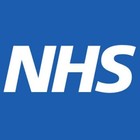Bilateral Meetings
- Thursday (1:30pm – 6:00pm)

The NHS was launched in 1948.
It was born out of a long-held ideal that good healthcare should be available to all, regardless of wealth – one of the NHS's core principles.
The NHS in England deals with over 1 million patients every 36 hours. It covers everything, including antenatal screening, routine screenings (such as the NHS Health Check), treatments for long-term conditions, transplants, emergency treatment and end-of-life care.
In 2014, the Commonwealth Fund declared that in comparison with the healthcare systems of 10 other countries (Australia, Canada, France, Germany, Netherlands, New Zealand, Norway, Sweden, Switzerland and the US) the NHS was the most impressive overall. The NHS was rated as the best system in terms of efficiency, effective care, safe care, co-ordinated care, patient-centred care and cost-related problems. It was also ranked second for equity.
NHS mission
Health and high quality care for all, now and future generations.
NHS vision
Everyone has greater control of their health and their wellbeing, supported to live longer, healthier lives by high quality health and care services that are compassionate, inclusive and constantly-improving.
NHS purpose
We create the culture and conditions for health and care services and staff to deliver the highest standard of care and ensure that valuable public resources are used effectively to get the best outcomes for individuals, communities and society for now and for future generations.
NHS values
The values enshrined in the NHS Constitution underpin all that we do:
· Respect and dignity
· Commitment to the quality of care
· Compassion
· Improving lives
· Working together for patients
· Everyone counts.
NHS behaviours: leading by example
We prioritise patients in every decision we take: everything we do is directly connected to our purpose of improving outcomes – not a process, not an organisation, not a profession – but the people who are at the heart of all that we do.
We listen and learn: we believe everybody has good ideas and has the right to be listened to carefully and thoughtfully. We respect and support each other, building trust and empowering one another and staff across the NHS, to achieve the highest standards.
We are evidence-based: we listen to the people and communities we serve, we look at insight and evidence and we measure our outcomes, so that our decisions are objective and we understand their impact.
We are open and transparent: we are accountable and we take individual and collective responsibility for our actions. We act with integrity and we are transparent about the decisions we make, the way we operate and the impact we have.
We are inclusive: we work in partnership with patients, clinicians in the NHS, the public and our partners because we get the very best outcomes when we work together with common purpose.
We strive for improvement: we believe we can always do better for patients and will challenge and seek challenge. We share ideas and knowledge and take risks because we believe in innovation and learn from our mistakes.
Engineering problems to solve
I am a trainee clinical engineer, one of my rotations is in Medical Device Design, in which I aim to become more aware of clinical requirements of a device for a client, the application of the Medical Device Directive and other related standards, the design and manufacturing processes of a medical device (commercial or custom-made), and finally providing the client/user with the medical device.
I am attending to gain more knowledge into where a clinical engineer based in the NHS can fit into medical device design in industry. I am starting work with Butters Innovation to learn and gain experience about the medical device design process from concept to production, before it is used in the clinical setting.
- Outsourcing co-operation
- Manufacturing agreement
- Sales / Distribution